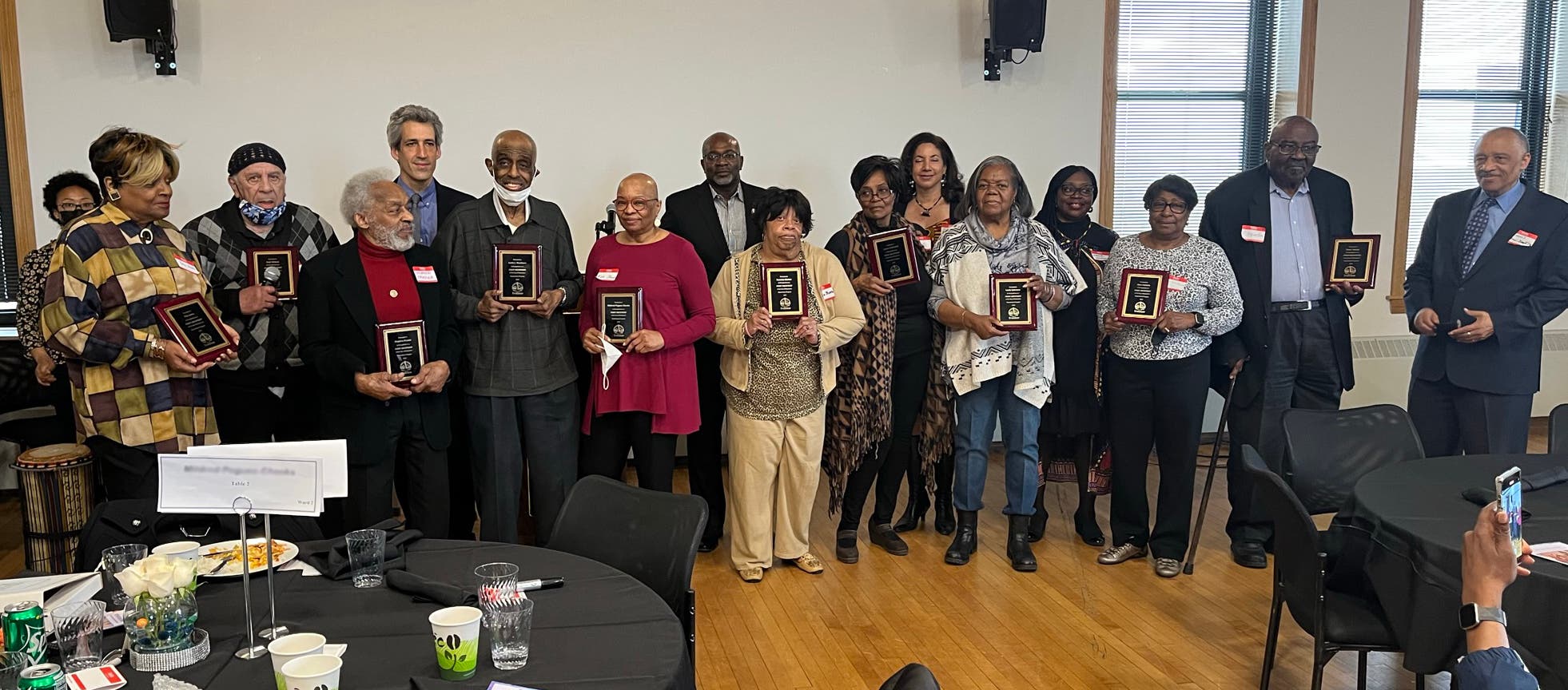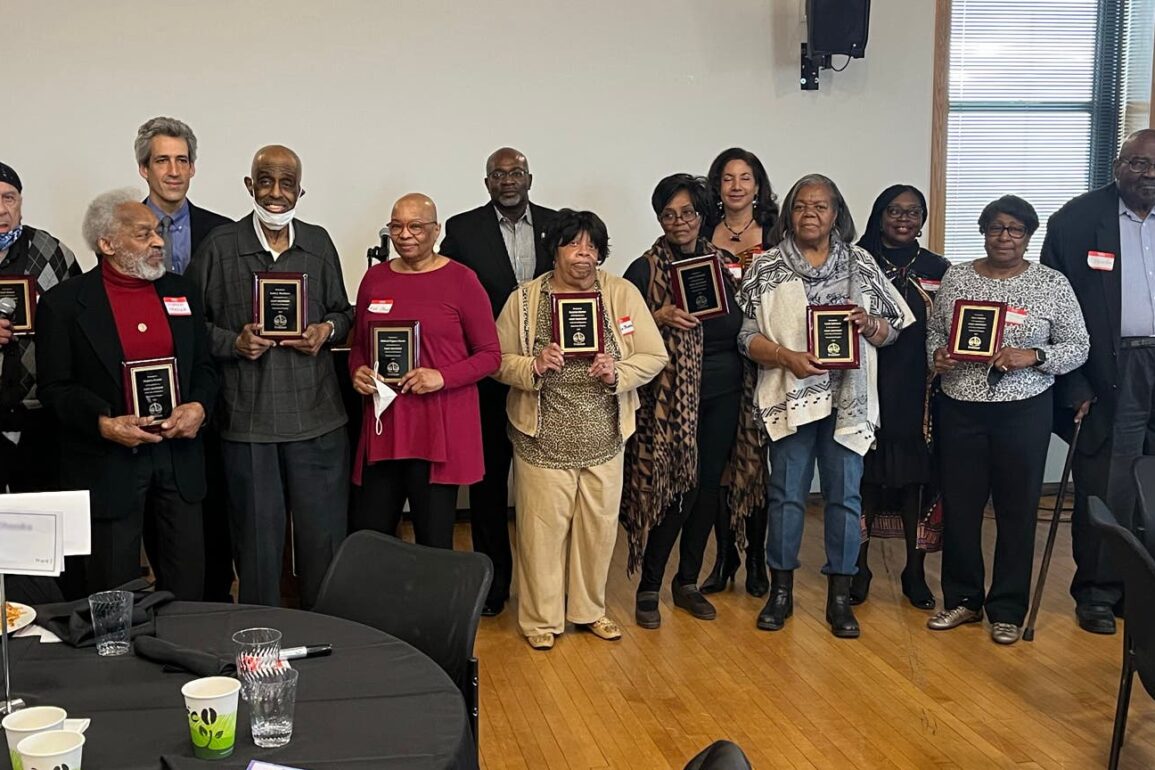EVANSTON, IL — Evanston’s groundbreaking local reparations program has distributed more than $5 million to about 200 eligible recipients, city staff announced.
The milestone comes as the city asks the federal judge to toss out a lawsuit filed earlier this year by Judicial Watch, a conservative legal nonprofit that alleges the program is unconstitutional.
Established to address decades of discriminatory housing practices, and funded by a mix of cannabis and real estate transfer tax revenue, Evanston’s first-of-its kind municipal reparations program provides payments of up to $25,000 for home improvement, mortgage assistance or as a direct cash benefit.
Find out what’s happening in Evanstonwith free, real-time updates from Patch.
“This has become part of our lives, like it’s almost routine for us now, and how special that our whole city has embraced it in the way that it has,” Reparations Committee Chair Robin Rue Simmons said at this month’s meeting.
“But it’s still a very big deal,” she said. “It’s still unique in this nation, unfortunately.”
Find out what’s happening in Evanstonwith free, real-time updates from Patch.

The program has now disbursed money to 132 of the 141 “Ancestor” reparations recipients — Black people who can establish they lived in Evanston between 1919 and 1969.
As of Sept. 1, the city had distributed an estimated $3.93 million to that group, according to city staff.
That includes about $743,000 in home improvement benefits, $438,000 in mortgage assistance, $100,000 in combined improvement and loan assistance and $2.11 million in direct cash benefits, an option that was added to the “Evanston Restorative Housing Program” last year.
Of the remaining Ancestors, four have requested to hold off before determining how they wish to receive the reparations, three are pending paperwork and two have died with staff unable to yet contact their family, Tasheik Kerr, assistant to Evanston’s city manager, said at this month’s Reparations Committee meeting.
The program has now moved on to distributing money to the descendants of Black residents who lived in Evanston during the period in question.
So far this year, 67 have elected for direct cash payments totaling nearly $1.6 million, while four have opted for the home improvement benefits, receiving an estimated $87,000, according to Kerr.

In May, nearly two and a half years after applications for the program closed, seven people filed suit against the city, alleging that their parents lived in Evanston but did not identify as Black, and that they were “able and ready to apply” for reparations if not for the race-based eligibility requirement.
In fact, people who do not identify as Black and whose parents do not identify as Black were still able to apply for the program, but they had to assert that they personally experienced housing discrimination “due to the City’s policies/practices after 1969.”
According to the city’s motion to dismiss the case, the plaintiffs in the case do not have standing to sue, and, even if they do, the program is constitutional.
“[The Local Reparations] Program is an appropriate remedy to address the past racial discrimination that Evanston acknowledges it perpetuated against its Black residents,” it said.
“And, Evanston stands ready to support the Program if the case moves past the jurisdictional and timeliness hurdles here. Indeed, remedying past intentional discrimination is a recognized compelling state interest”
Plaintiffs Margot Flinn, Carol Johnson, Stasys Neimanas, Barbara Regard, Henry Regard and Stephen Weiland “believe they have standing just because they say so,” broadly claiming they would be eligible for the program if they were Black, according to the motion.
But they fail to sufficiently allege that they were able to apply for it, as they do not meet the geographic or housing requirements to participate in the program.
Additionally, the city’s attorneys contend that the lawsuit is untimely under the two-year statute of limitations for such claims.
They promise to address the constitutionality of the program should the case progress.
“Furthermore, the Program is narrowly tailored to provide modest relief to those who (1) directly suffered from this acknowledged intentional discrimination, (2) are the direct descendants thereof, or (3) have evidence they suffered other housing discrimination after 1969,” the motion said. “Accordingly, the Program is constitutionally sound.”
The Judicial Watch lawyers have until Wednesday to file a response to the city’s motion to dismiss. The city’s reply to that is due Oct. 2.
Get more local news delivered straight to your inbox.Sign up for free Patch newsletters and alerts.


